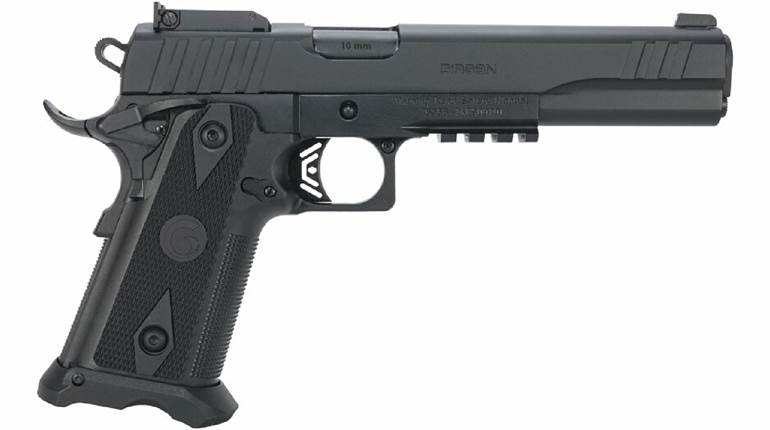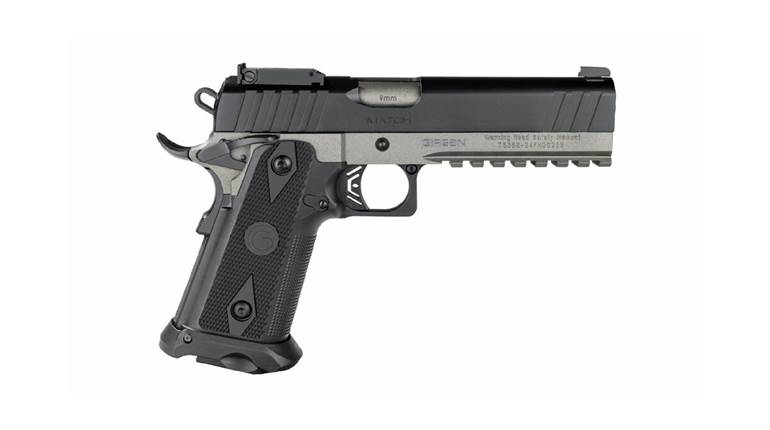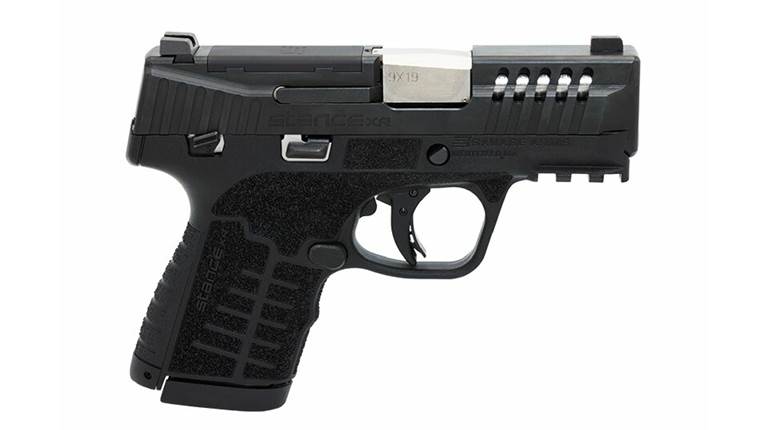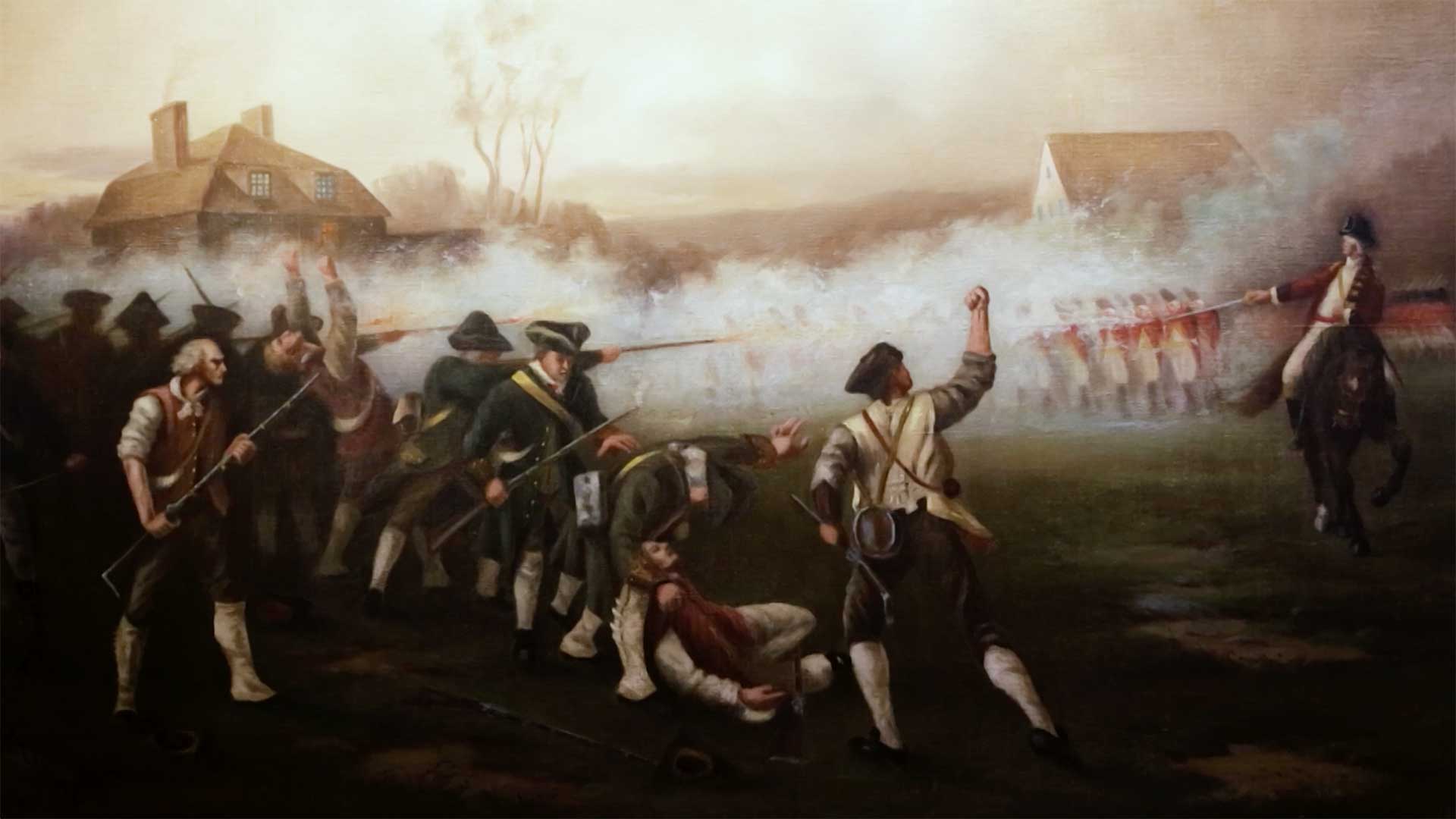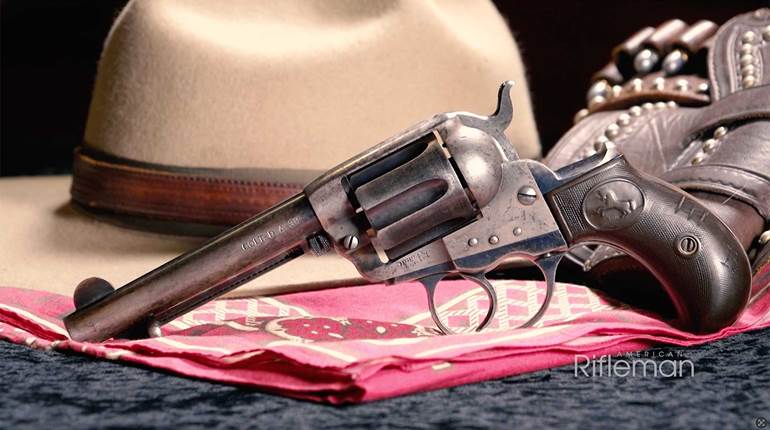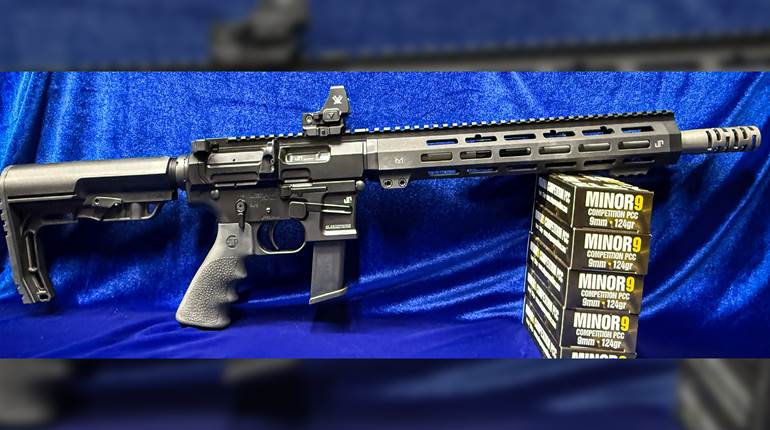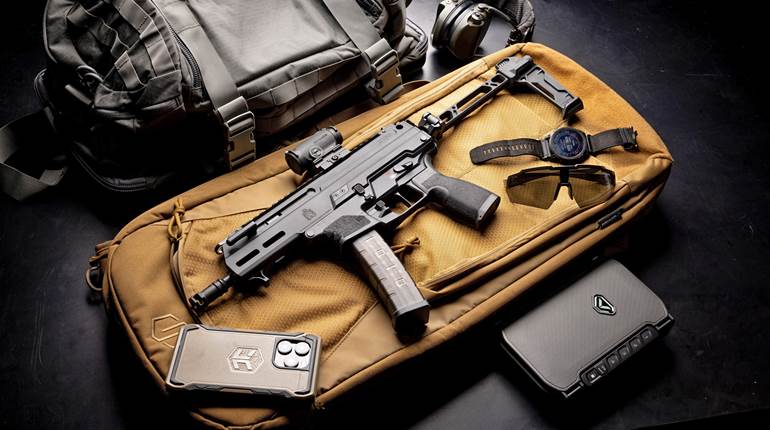
For more than two decades, Glock has been recognized as a premier provider of service-size and self-defense, polymer-framed semi-automatics. The company enjoys a world-wide reputation for manufacturing reliable, durable and easy-to-operate pistols. For the most part, Glock has focused on developing handguns primarily for military and law enforcement use. But finally, after years of being hounded by operators and civilians alike, the company has released its first pocket pistol to the American market. It's a single-stack .380 ACP called the G42.
Shrinking an existing pistol platform into a pocket pistol is no mean feat of engineering. Many manufacturers don't even try. Instead, they often design a whole new gun (or borrow someone else’s design). So it is very interesting to see how the features of the G42 have been compressed and modified, and how much of the pistol remains the same as other Glock models. The G42 is not going to be marketed as a Gen4 product. However, examining it side-by-side with examples of Gen3 and Gen4 pistols confirmed that this new gun takes its feature cues from the latest generation.
G42 Features
The G42 pistol is built to the same exacting standards as the double-stack Glocks. It has that unmistakable signature look, only smaller. The G42 is 5.94-inches long, 4.13-inches high and weighs in at 13.8 ounces unloaded, making it the smallest Glock pistol to date. It's listed as being 0.94-inches wide but it’s only this thick near the slide catch. The rest of the frame averages 0.89 inches in width, with the slide being just 0.83-inches wide.
The slide is constructed of gas-nitrate-treated steel with a matte-black finish. The 3.25-inch barrel contains hexagonal rifling, which means it should be fired with jacketed ammunition. The sights consist of the factory standard polymer white-dot front, white-bracket rear. Internally, the pistol employs the same striker, short-recoil operated, locked-breech barrel and Safe-Action trigger system as its larger compatriots. One notable change to the interior is an enlarged firing pin safety plunger with an irregular shape and a beveled surface. The recoil assembly is of the Gen4 variety with dual recoil springs, a polymer guide rod and steel supports in key locations.
The polymer frame exhibits a mix of unique and familiar features. The slide catch, magazine release and take-down lever are in their expected locations and are actually the same size and shape as those found on the Gen4 pistols. However, the frame only has one pin instead of two. The grip frame has a Gen1-style straight frontstrap, with the backstrap featuring the usual palm swell. All four sides of the grip are treated with what could best be described as a light version of the Rough Texture grip treatment. It consists of the same small, raised, blunted pyramids but with a less aggressive surface.
The grip has a small, but distinctive, downward-curving beavertail to protect the shooter's hand from the slide. The backstrap extends down below the mouth of the magazine well, nearly flush with the flat base of the drop-free, fully metal lined, six-round, single-stack magazines. This extension makes the grip a little longer, a bit more rounded and it protects the shooter’s palm from being nibbled by the movement of the magazine base during recoil.
One of the best choices the company made with the G42 was to retain the familiar trigger guard and trigger dimensions of its larger pistols. Although the trigger guard is narrower from side to side, the length, shape, finger rest and size of the trigger opening remain the same. The trigger itself is the same size and shape as the smooth-faced triggers used on the Gen4 pistols, with the same 0.49-inch travel distance. As a result, the trigger feels perfectly familiar to those who already use Glock pistols. Proof marks on the slide, barrel and frame indicate that the G42 is made at Glock’s Smyrna, Ga., facility right here in the United States.
At the Range
At the shooting range, the G42 proved to be one of the most comfortable and softest shooting pocket .380s I've wrapped my hands around. Small .380s tend to produce moderate to intense levels of felt recoil, with some loads becoming downright uncomfortable to shoot after just a few rounds. The felt recoil produced by the G42 was mild with standard pressure full-metal-jacket and defense-grade ammunition. Only when it was loaded with the hottest ammunition in the test set did it start to produce a moderate level of recoil. Most pocket rockets arrive with minimal, hard-to-see sights, so the full-size sight picture provided by the Glock factory sights was a welcome improvement. Several members of the shooting range staff gave the G42 a try, and they agreed that it is definitely a low-recoil handgun.
The specifications for this pistol indicate that it’s supposed to leave the factory with a 5.56-pound trigger. A digital trigger gauge showed that although the trigger is smooth, it cycles with 7 pounds, 3 ounces of trigger pull. Is the trigger heavier than the standard weight because it needs to be broken in, because it’s one of the first samples off of the production line or did Glock install a heavier trigger connector than the one listed in the specification? Whatever the reason, the trigger was good, but not quite as good as it could be.
The G42 was test fired with as many.380 ammunition brands that could be acquired. When enough of a particular load was available to fire five, five-shot groups, it was included in the accuracy testing. Throughout the entire test, the pistol did not experience any of the traditional ammunition failures that can occur with semi-auto pistols, such as failures to feed, stove-piped cases or un-ejected cases lodged in the chamber.
The only two events that could be noted as malfunctions occurred when firing a high-velocity, 95-grain bullet load from DoubleTap Ammunition. Operating at velocities over 1,000 fps in pocket .380s, compared to around 880 fps with typical loads, this round caused the slide to lock open twice (as if the magazine was empty) when there were still rounds left to fire. In both cases, the chamber was clear and the next round in the magazine chambered when the slide was retracted and allowed to fall forward. This is the first time I've had a semi-auto pistol go into slide lock during a test fire. But since the G42 did not lock open with any other load, it seems that the increased pressure produced by this particular round was the source of the problem.
One of the reasons the double-stack Glock subcompacts are popular is because they are capable of producing downrange accuracy on par with the Glock Compact and Standard size pistols. Field tests of the Gen4 G30S (.45 ACP), G29 (10 mm), and the G33 (.357 Sig), all of which yield energetic levels of felt recoil, produced group averages hovering right around 3 inches in size when firing the pistols from a bench rest into targets placed at 25 yards.
The G42 did not demonstrate the same level of accuracy as the double-stack models, which was not wholly unexpected. Instead, the accuracy was in line with other pistols of the same size and caliber, such as the Ruger LC380 and the Taurus PT638 PRO SA. Using targets set at 7 yards, the G42 produced group averages ranging around 1.5 to 2 inches in size. This is a solid level of defensive accuracy for an easy to carry, close-range defensive tool, which is how the G42 is intended to be used.
Parting Thoughts
The G42 is a pocket pistol shooting enthusiasts have been waiting for. This was an intriguing review to conduct because I am a fan of Glocks and I enjoy working with pocket pistols. As such, I was able to judge this new little single-stack from two distinct perspectives. Glocksters will feel right at home with the G42’s layout. It looks like a Glock, it operates like a Glock and it's just as reliable as the double-stack Glocks.
But what about those who are looking for a pocket pistol to use for concealed carry yet are unfamiliar with Glocks? The G42 is soft shooting, reliable and demonstrates a level of defensive accuracy as good (or better) as other semi-autos in its class. This is one of only a few pocket pistols I would feel comfortable recommending to new, small-framed or recoil-sensitive shooters. I like it so well that I'm planning to inquire if the sample provided for this test is available to purchase. I can’t give it a higher recommendation than that.
Manufacturer: Glock; Glock.com
Model: G42
Action: Safe-Action Semi-Auto Pistol
Caliber: .380 ACP
Slide: Black Gas Nitrate
Frame: Black Textured Polymer
Sights: Fixed
Barrel Length: 3.25”
Overall Length: 5.94”
Height: 4.13”(With Magazine)
Width: 0.94”
Weight: 13.8 ozs. (With Unloaded Magazine)
Capacity: 6+1 Rounds
Twist: 1:9.84” RH
Rifle Grooves: Hexagonal
Accessories: Two 6-Round Magazines, Hard Case, Cleaning Brush, Manual, Lock
Suggested Retail Price: $480













